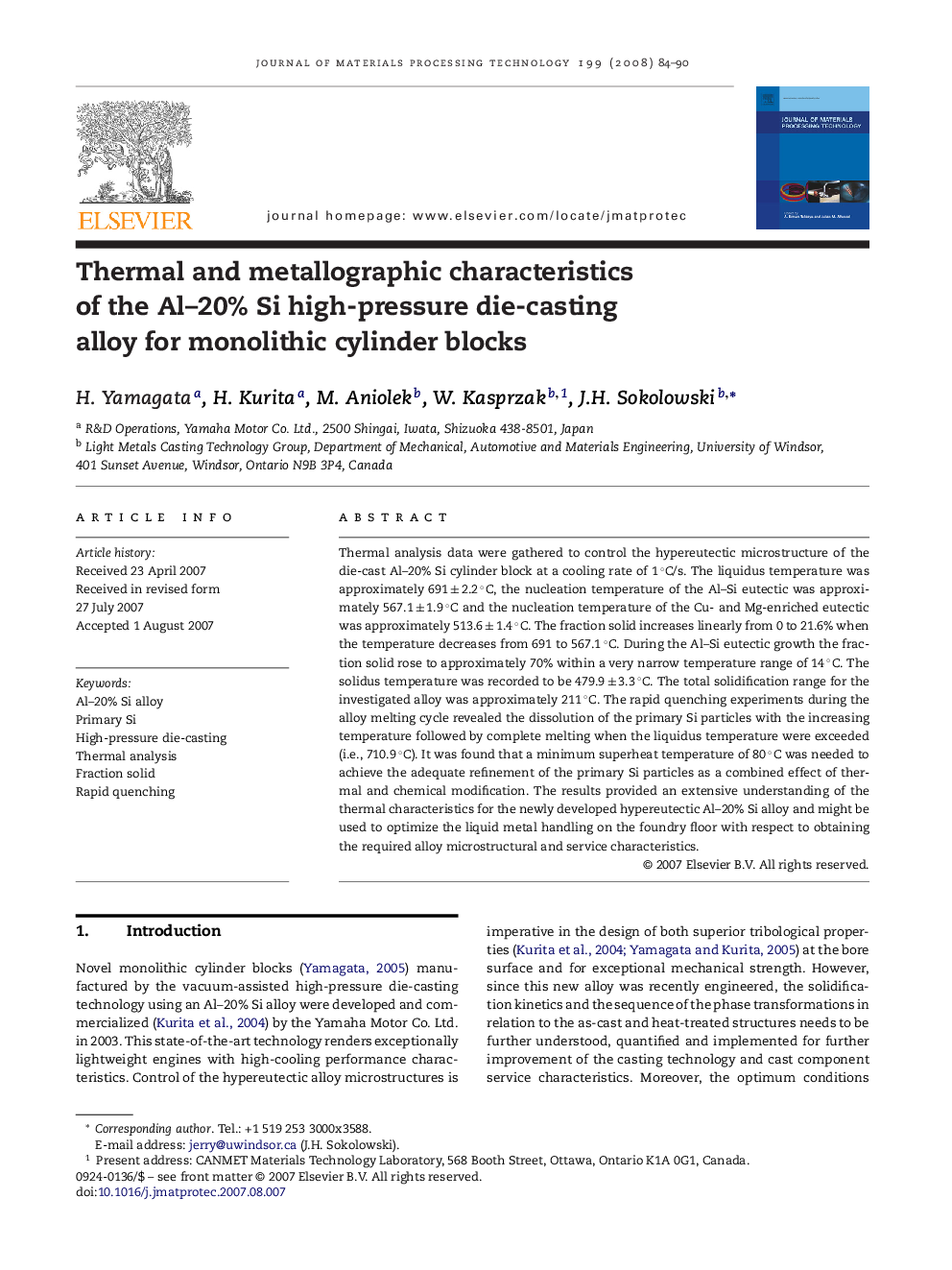| Article ID | Journal | Published Year | Pages | File Type |
|---|---|---|---|---|
| 791738 | Journal of Materials Processing Technology | 2008 | 7 Pages |
Thermal analysis data were gathered to control the hypereutectic microstructure of the die-cast Al–20% Si cylinder block at a cooling rate of 1 °C/s. The liquidus temperature was approximately 691 ± 2.2 °C, the nucleation temperature of the Al–Si eutectic was approximately 567.1 ± 1.9 °C and the nucleation temperature of the Cu- and Mg-enriched eutectic was approximately 513.6 ± 1.4 °C. The fraction solid increases linearly from 0 to 21.6% when the temperature decreases from 691 to 567.1 °C. During the Al–Si eutectic growth the fraction solid rose to approximately 70% within a very narrow temperature range of 14 °C. The solidus temperature was recorded to be 479.9 ± 3.3 °C. The total solidification range for the investigated alloy was approximately 211 °C. The rapid quenching experiments during the alloy melting cycle revealed the dissolution of the primary Si particles with the increasing temperature followed by complete melting when the liquidus temperature were exceeded (i.e., 710.9 °C). It was found that a minimum superheat temperature of 80 °C was needed to achieve the adequate refinement of the primary Si particles as a combined effect of thermal and chemical modification. The results provided an extensive understanding of the thermal characteristics for the newly developed hypereutectic Al–20% Si alloy and might be used to optimize the liquid metal handling on the foundry floor with respect to obtaining the required alloy microstructural and service characteristics.
